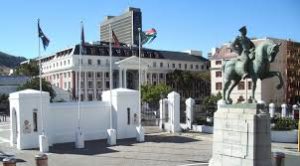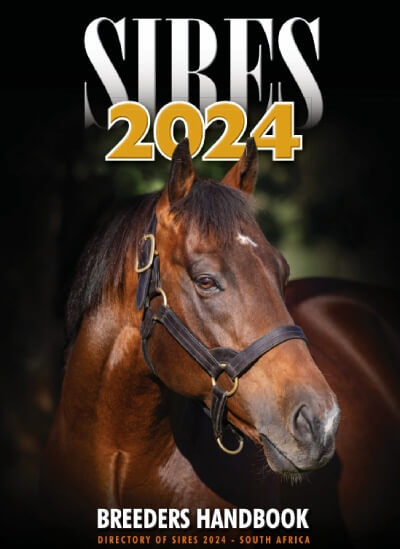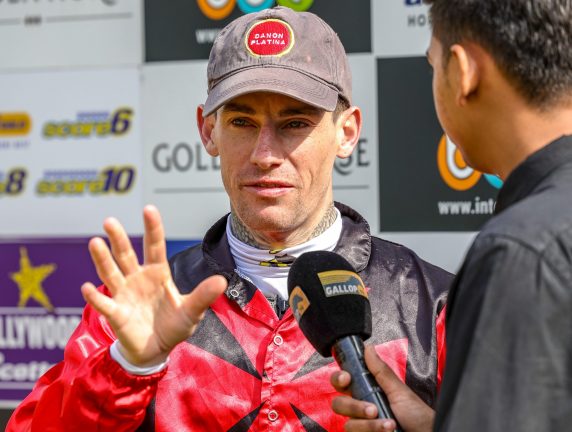I started writing for the Sporting Post to write about horses. And racing. I did not take the job to write about politics, legislation and government policy. Unfortunately, it turns out that without the politics, legislation and government policy, there is no racing and no horses to write about. I find that vexing, if I’m honest, but as it seems out that no-one else is writing about the boring, but necessary stuff, I’m the only one left to do it. So here we go.
On 15 May 2015 the Department of Trade and Industry published its National Gambling Policy in the Government Gazette, Notice 416 of 2015 and the public is invited to provide comment within 45 calendar days of publication (i.e by 22 June 2015). Should you wish to take part in the consultation – which I urge you all to do – you have every right to do so and can furnish any views and comments to [email protected] before the 22 June cut-off date.
Why should I bother?
I was going to give my motivation at the end, but as it’s going to be hard going (forewarned being forearmed and all that), I’m not holding out hope that too many of you are going to make it that far, so I’ll make my case now.
Insofar as horseracing is concerned, the operators and owners of the totalisator (Gold Circle (Pty) Ltd and Phumelela Gaming and Leisure Limited) have made several representations to Parliament. The National Horseracing Authority of South Africa have made representations to Parliament. Furthermore, so has the Racing Association made representations to Parliament. The Grooms have had a representative fighting their cause before Parliament. So have bookmakers.
The only group that hasn’t been included, dear reader, is you.
Whoops!
Yes you. The problem lies in the fact that the Policy has not received any representation from the lifeblood of horseracing, namely the punter. Secondly, the Racing Association does NOT represent all owners, so owners who are not RA members should also be informed and deserve an equal and fair chance to contribute their views.
OK, but why is this my problem?
I was encouraged by the fact that a number of people took the time to read the recently published NHA AGM Minutes and better yet, that a few people commented on the contents. I thought that there was a lot to comment on, and also that members, as a body, should be a little more pushy about demanding answers. But that’s a discussion for another day. The National Gambling Policy is another document which merits serious consideration and I haven’t seen it raised by any other racing stakeholders or bodies to date, which is a little odd as they have been participating in the process. I think it’s important that it is brought to the attention of the industry as a whole. If we don’t take an interest – and a hand – in administration matters, we run the risk of being excluded from the decision making process altogether and these decisions are being made at the highest level and have potentially far-reaching effects.
If you read all this, you are a champion!
So here goes. The National Gambling Policy deals with all forms of gambling in South Africa. My area of interest relates fairly specifically to the horseracing and betting aspect, so I have selected the bits that I found most relevant, however I recommend that the document is read in its entirety.
The policy proposal regarding Horseracing and Betting is that “horseracing be statutorily regulated in that the self-regulation model be formally recognised subject to being monitored by Provincial Licensing Authorities (PLAs), and the minimisation of animal welfare issues. An assessment may be conducted in future to determine if self-regulation should continue with oversight of PLAs, or whether full regulation will be required. At this point a case for full regulation has not been made in the various consultative processes and the industry seems to have its processes in order. However, based on the challenges raised around failure to recognise certain stakeholders, entrenched barriers to entry, proper governance and fair play imperatives, limited oversight by the state is recommended. Although concerns were raised about bookmakers taking open bets, it is proposed that only a provision addressing that intellectual property of other players should be used with necessary consent, and/or compensation relating thereto.”
Challenges
In relation to existing problems in the horseracing industry, the policy document recognises and states that:-
“Horseracing is self-regulated and the Act does not provide criteria how this regime should be managed given emanating challenges. Problems range from labour disputes, transformation of the sector and inclusion of other horse racing activities, e.g. trotting and bush racing. More, the growth and development of this industry from a trade, agricultural and global competitiveness perspectives may require some form of government intervention.”
Proposal
“HORSERACING AND BETTING
4.4.1 Horseracing in South Africa
4.4.1.1 Horseracing in South Africa is a self-regulated industry under the auspices of the South African National Horseracing Authority (NHA). The NHA is not a statutory regulator but is responsible for licensing horse trainers, owners and monitor all the race meetings. Phumelela and Gold Circle (Gold Circle operates only in the KZN and Western Cape provinces) own the tracks in the country and conduct the race meetings. The two companies also own a large share of betting on horses through their jointly owned tote betting operator.
4.4.1.2 Another important role player in the horseracing industry is the bookmakers who collect bets from horseracing. Bookmakers also collect bets from other sporting activities like soccer, car racing and others. Bookmakers contributes 3% of their total revenue towards the horse industry in the form of a levy paid to the provincial regulators who will in turn pay it over to the horseracing operators.
4.4.1.3 The Act and provincial gambling legislations only regulate betting on horses and says nothing about the entire industry, which is self-regulated under the NHA. The policy consideration need to determine if the self- regulation model in the horseracing industry should be retained as it is or a totally new model should be adopted.
4.4.1.4 It must be borne in mind that there are concerns raised regarding the transformation of the industry and its willingness to participate in the creation of a fertile environment to accommodate transformation targets. Issues of ownership and entry for new role players in the industry were found wanting in that there seem to be no space for new entrants to enter the industry.
4.4.2 Horseracing Regulatory Structure
4.4.2.1 The industry will be left to continue with the self-regulation that is statutorily entrenched giving policy guidance on how the industry should be managed. The independence of each role player must be properly outlined to ensure that all stakeholders participate equitably. It will be important that the regulatory structure maintain a high level of independence from the ownership and control of the entire industry.
4.4.2.2 Board members must maintain independence from the ownership and control while ensuring that all participants are treated fairly in all levels of command.
4.4.2.3 The self-regulation approach is a reasonable approach considering that horseracing has been under self-regulation process since its inception over a century ago. Further the administrative and financial burden to the provincial regulatory authorities will be minimised.
4.4.2.4 Self-regulating body will be accountable to the respective provincial regulatory authority in all their administrative and financial performance. The Self-Regulating body will ensure that there are more accessible mechanisms in place whereby complaints and concerns may be reported and investigated to ensure success.
4.4.2.5 The regulatory authorities will jointly develop criteria whereby the self-regulating body can be evaluated. How the self-regulating body meets the above criteria is to be determined in the said criteria. These requirements should appear in the internal controls of the self-regulating body. PLAs will develop criteria for the efficient operation of the self-regulating body. The coordination of developing the criteria should be vested on the NGB and the criteria must eventually be approved by Council to ensure harmony.
4.4.2.6 In the event the self-regulating body fails to comply with the systems and procedures the Executive Authority may upon report and investigation empower the provincial regulatory authority to take over the interim administration of the self-regulatory body until the Executive Authority is satisfied that the self-regulating body will effectively comply.
4.4.2.7 The standards will enable all forms of horse sporting activities and the betting thereon.
That horseracing continues to be regulated under a statutorily recognized self regulating body, which will be monitored by the relevant PLA. The PLAs will develop the criteria for self-regulator to function under the coordination of the NGB and Council must approve the criteria.
4.4.3 Funding of the Regulatory Authority
4.4.3.1 Funding model for the regulator must be outlined in terms of the legislations and Regulations, since certainty for the funding of the regulator will ensure independence from the industry role players especially if self-regulation is adopted. Under self-regulation the provincial regulatory authority will conduct regulatory oversight and table the reports to the Executive Authorities within the respective provinces.
4.4.3.2 Consistent funding can be derived from the following:
4.4.3.2.1 Any fees payable to a horseracing authority in terms of the horseracing authority’s constitution or rules;
4.4.3.2.2 Fees paid to the horseracing authority by racing operators in terms of the number of scheduled race meetings per year;
4.4.3.2.3 Income derived by the horseracing authority from its investment and deposit of surplus money;
4.4.3.2.4 Fees payable to the horseracing authority in terms of the Act or any other national or provincial legislation, and
4.4.3.2.5 Other money accruing to a horseracing authority from any source.
Funding for the Regulatory Authority must be determined and provided for in terms of the legislation and regulations.”
The business of bookmakers is also considered in the policy document. In this regard the following is opined:-
“4.4.5 Bookmakers
4.4.5.1 There is a longstanding dispute between the bookmakers, operators and the horseracing industry. The dispute is about bookmakers collecting open bets or bets on the results of totalisator betting without contributing to the intellectual property of the owners as operators to the horseracing industry. The bookmakers must be required to contribute a market related amount towards the Intellectual Property rights affected. On the same issue the bookmakers keep on taking bets from the lotteries results and that undermines the Lotteries Act – Paragraph on lotteries above applies to bookmakers as well.
Definition of bookmakers should be amended to that Bookmakers pay for the Intellectual Property (IP laws) rights attached to the totalisator system. A market related rate should be determined in terms of the IP laws.”
Do Not Go Gentle
They say silence implies consent. Do not allow your silence to be construed as consent. Important decisions are being made regarding the future of horseracing and betting and if you want to have a say, now is your opportunity. It makes no difference who you are or what your standing may be, you have rights and in particular, a right to be heard.
Should you wish to comment, you have every right to furnish your views and comments to [email protected] by 22 June 2015.
Rage, rage against the dying of the light.









